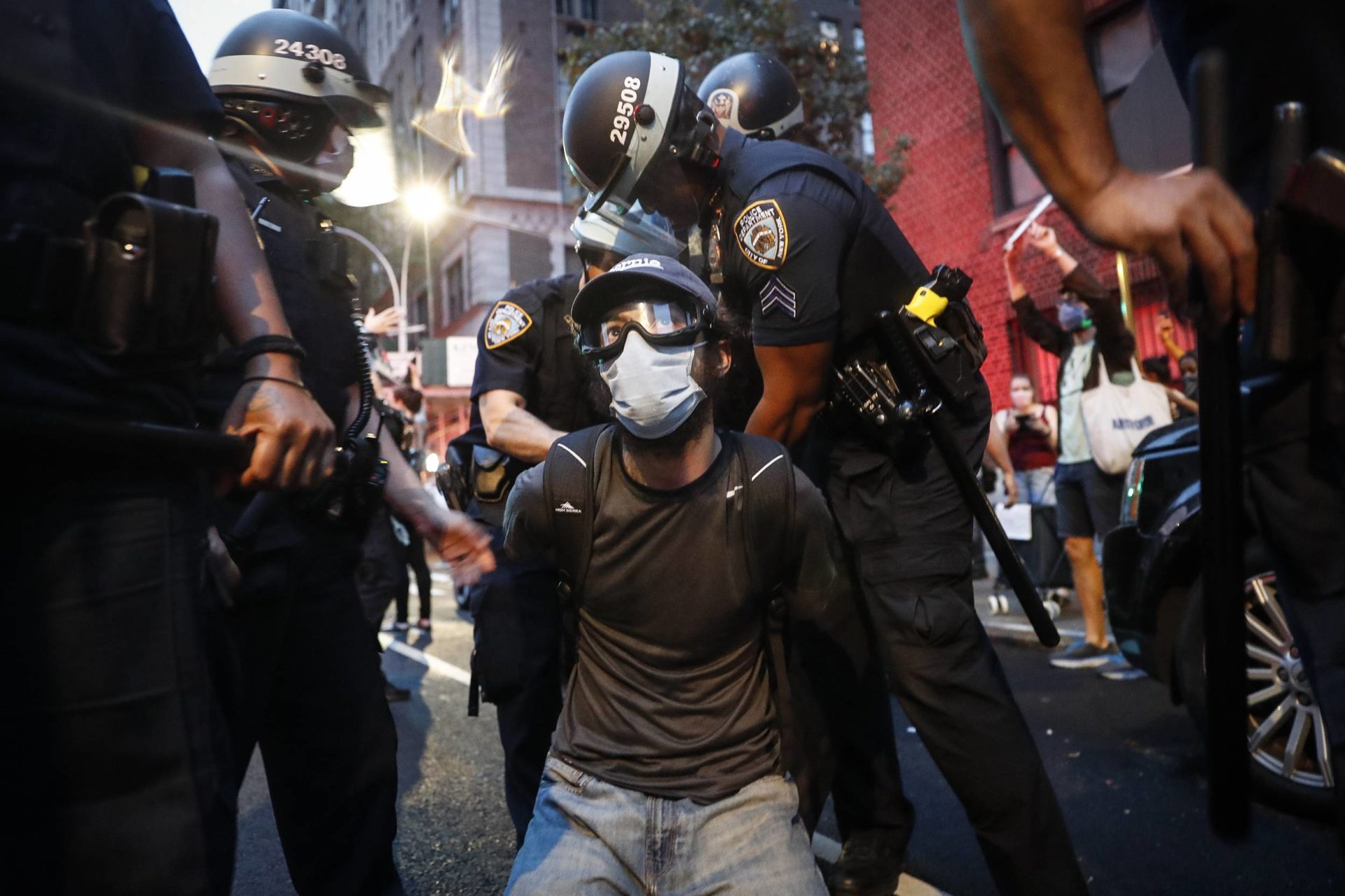The distrust in the police is the result of a self-fulfilling prophecy. When police perform badly, they lose trust. This distrust leads to a cycle of poor behavior, which also leads to an increased in crimes. More crimes lead to more stress on the police to do their job. As a result, more corruption inevitably follows. This vicious circle keeps a society divided.
Let’s begin with a little history of policing in America. Sadly, our society is deeply divided. It is also already headed toward a Dickensian dystopia.
 The police will suffer the consequences of a divided society, which, many a time, they helped ferment. But how can we restore public trust in the police? Here are a few ideas to consider.
The police will suffer the consequences of a divided society, which, many a time, they helped ferment. But how can we restore public trust in the police? Here are a few ideas to consider.
Reason #1: Lack of empathy
The first reason for police distrust is a lack of empathy. This symptom of a larger problem, often related to poverty, is not unique to black people. Regardless of race, police mistreatment is a common feature of urban and low-income communities. Whether the community is black or white, the police’s role in a neighborhood is shaped by social context. This makes it difficult to understand why black and white residents of poor communities feel distrustful of police officers.
The problem of police distrust in America is not a new phenomenon. In both the summer and the fall of 2020, protests and demonstrations raged across the country. Meanwhile, police distrust has skyrocketed. As a result, police applications for employment have fallen.
A recent report by Fort Worth Police Officer Association President Manny Ramirez reported a 60 percent drop in applications from prospective candidates. In addition, policing is becoming increasingly dangerous. A study published in the Journal of Law Enforcement Ethics and Professionalism reveals a 28% spike in felonious officer deaths in July 2020.
Reason #2: Prejudice and discrimination
The second reason for police distrust is prejudice and discrimination. While race is not the primary determinant of distrust, other factors, such as poverty and neighborhood crime rates, have a significant impact on perceptions of police. While racism might be one factor, whites and minorities would still be equally distrusted of police. These findings point to an unavoidable issue. In this case, it is the effects of race and racial disparity. These issues are pervasive in various American institutions. The lack of trust in police results from widespread prejudice and discrimination.
Reason #3: Perception
The third reason for police distrust is the way people perceive police in their communities. People with a distrusting mindset are more likely to feel that the police are inherently cruel and untrustworthy. For instance, in Nigeria, a study involving hundreds of participants found that the police had little regard for minority groups.
In the United States, black Americans are more likely to view the police with suspicion. This is the result of the perception that the police are not there to help people of color. Many blacks believe that white police officers are less tolerant of minorities than the way they are likely to treat whites or other ethnic groups.
Reason #4: Openly racist
In general, racial minorities are more likely to feel targeted when police are mistreating them. This distrust is especially harmful for the police. It makes it difficult for the police to combat crime. When police officers are openly racist, that encourages criminals to take the law into their own hands. A lack of trust in police undermines the community’s trust in the police. It hampers the efforts of the police to reduce crime.
Reason #5: Source of evil
In the United States, the most common cause of police distrust is racism. The police are not always perceived as a force for ‘good.’ Some police officers are not seen as a “good guy” who has a duty to do what’s right. When the police are not seen as a force for good or the police officer is not considered a “good cop,” that might incite distrust in the community. The police officer might act in a way that suggests that he should show no respect for black people’s rights. It is an us versus them mentality. If you don’t trust the police, you would likely be a victim of their conduct.
Reason #6: Lack of community involvement
The modern community-oriented policing model emphasizes relationships, public opinion, and public safety. Police departments are accountable to the citizenry. However, many police agencies lack transparency. Some departments overpolice areas where there is no crime. Routine encounters with the police could lead to incalculable tragedies. Those who are victimized by police often have no recourse against their perceived aggressors.
Reason #7: Impartiality
The police are not always impartial. They’re biased. They are often mistrusted in the community as a result. In other words, the common perception is that these police officers don’t serve their community’s needs. They may not be interested in them at all. This causes distrust and anger.
Reason #8: Structural disadvantage
A further cause of police distrust is a structural disadvantage. Many poor communities of color have been disenfranchised from society. Their poorness and the racism that characterize their daily lives might be contributing factors in their deprivation in society. It’s no surprise that communities of color don’t trust the police. They feel isolated and ostracized. Because they don’t enjoy a good rapport with the police, they distrust them. Simply put, they don’t trust the police.
Reason #9: Fear
In addition to the problem of racial bias, racial disparity also contributes to police distrust. However, the common denominator between the two is fear of police. While it is normal for most people to be wary of the police, some individuals, mainly white people, aren’t genuinely afraid of them. They have no interest in the police. They have no reason to fear them. From their vantage point, the police aren’t, in any instances, able to harm them. The police, in their view, are always on guard and ready to protect them against crimes. But this reality is not a common experience for every American.
Reason #10: Negative experience
Most people are afraid of the police. Either they have had a negative experience with the police or they heard stories, which make them fear the police. These individuals, generally, people of color, are likely to distrust the police. Nonetheless, the American people need to trust the police. The police are there to protect them. Sometimes, that protection requires a bit of trust on both sides. After all, the police could not do their job if they are not trusted to do so.




